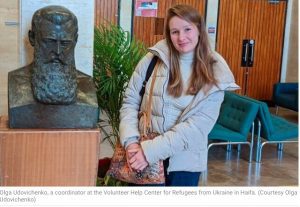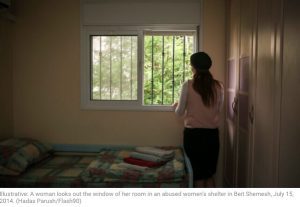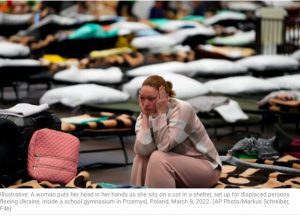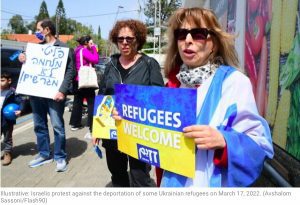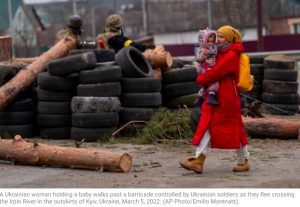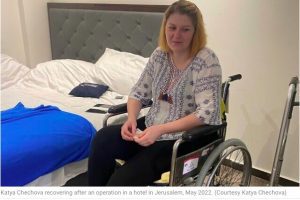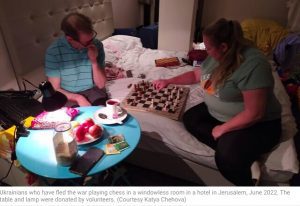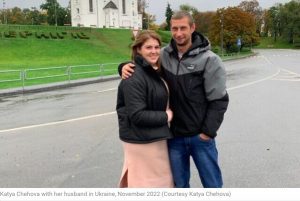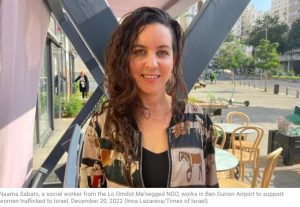“The women hear about these jobs mostly from Israeli men posting in Telegram and other social media channels, jobs that sound glamorous with fantastic salaries. Most of the time, the women know it is sexual work — but even when they know, they don’t really know,” Sabato says, explaining that for the most part, the women she talks to are 19 or 20 years old.
“Often, their mother is involved [in trafficking them],” she says. “Prostitution means you’re coming from trauma, and you are creating fresh trauma.”
She shares with the Ukrainians she meets some of the stories of women who have been trafficked and are now in shelters: “The reality is that you are locked in some room in the center of Israel and you need to work — a lot. You’re illegal here, your work is illegal, your stay is illegal, and your owner remains fully in control. You can’t do anything.”
According to a section on Israel in the 2022 US State Department’s Trafficking in Persons Report, “the [Israeli] government’s efforts to investigate and hold labor traffickers criminally accountable remained inadequate.” In 2021, police opened just three sex trafficking files and investigated 118 sex trafficking-related crimes. All were determined to be “prostitution-related” offenses.
The resources made available for supporting women who have been trafficked upon arrival in Israel are scarce.
Sabato is the sole person doing this job in the whole of Israel. While she is based in Ben Gurion Airport, another airport — Ramon in southern Israel — operates many low-cost flights from Eastern Europe and is located close to the coastal town of Eilat, which is a known hub for sex workers.
“We don’t yet know what to do about it — the authorities are not so focused on it,” Sabato says.
Today, some of the Ukrainians in Israel are holding out hope that the new incoming government will do more to help them.
Back at her cleaning job, Marina is now once again determined to cut all ties with her employer Amir. She is saving money and is looking for her own cleaning clients, changing her SIM card, blocking numbers and moving apartments.
“I need to do everything in my power to make sure he won’t find me,” she says. “I can’t go on working for him like this, but I also can’t go back home to Ukraine — there is nothing there left for me.”
Many others have simply given up and are leaving Israel.
After deciding not to appeal the police’s decision to close her file, Svetlana felt she could no longer stay in Israel and raise her child close to the man who had raped her, says Udovichenko.
She told Udovichenko: “God will be his judge.”
(Some names in this article have been changed for the individuals’ protection.)
Do you rely on The Times of Israel for accurate and insightful news on Israel and the Jewish world? If so, please join The Times of Israel Community. For as little as $6/month, you will:
- Support our independent journalism;
- Enjoy an ad-free experience on the ToI site, apps and emails; and
- Gain access to exclusive content shared only with the ToI Community, including weekly letters from founding editor David Horovitz.

